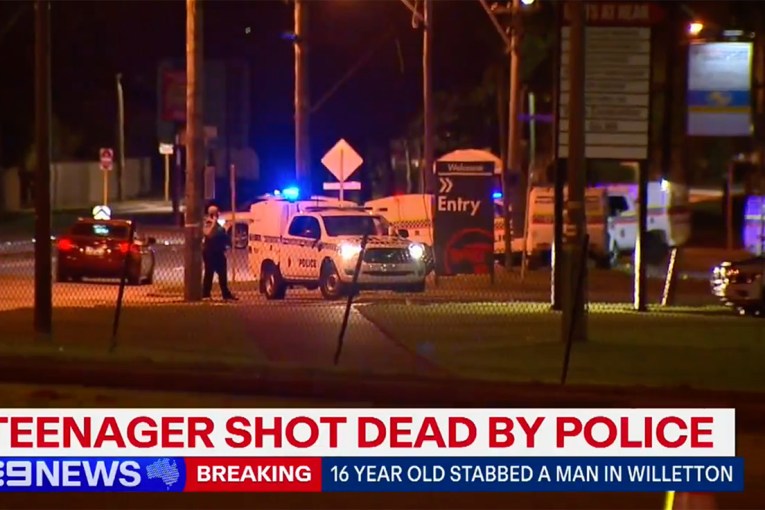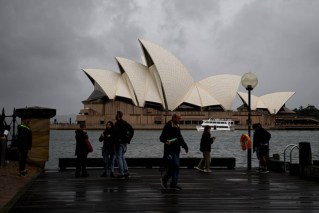2019: The year that brought us wild fires and wild election results

Hobart welcomed the bright and shiny 2019 with its largest display of fireworks. Photo: ShowFX
2019 was a year of wild fires and wild election results, of blaming and shaming in the banking sector, and the year climate activism went mainstream. It was nothing if not diverse.
The big news kicked off early with the handing down of the financial services royal commission report in February.
Justice Kenneth Hayne unveiled 76 sweeping recommendations to banking, superannuation and financial advice, and referred numerous companies to regulators for possible criminal and civil action.
“The damage done by that conduct to individuals and to the overall health and reputation of the financial services industry has been large,” he wrote.
Justice Hayne’s findings quickly led to the rolling of heads, namely National Australia Bank’s chairman Ken Henry and chief executive Andrew Thorburn, as well as billion-dollar compensation payouts to millions of customers.
All four of the country’s major banks announced big declines in earnings for the year, while retail superannuation also suffered a $31.5 billion hit.

Kenneth Hayne delivers the banking royal commission report to Treasurer Josh Frydenberg.
But the storm in the banking sector was far from over. By November, a fresh scandal had engulfed Westpac over money laundering and a failure to prevent customers paying for child exploitation in the Philippines. Within days, the company had also lost its chairman and chief executive.
Also in February, the Australian public learned the truth about Australia’s most senior Catholic, Cardinal George Pell. Journalists who had sat through one of the most shocking trials in living memory finally had a suppression order lifted and were able to report that Pell had been found guilty of multiple child sex offences.
The cardinal – who continues to protest his innocence from jail – recently won the right to have his appeal heard in the High Court of Australia.
(• Cardinal George Pell was released from prison on April 7, 2020 after the High Court quashed his five convictions for child sexual abuse.)
May brought with it a shock election result that had the Labor Party and pollsters reeling. Despite polls putting the ALP ahead 52:48 on a two-party preferred basis, voters turned that on its head on election day – securing the Coalition a third term in government by almost the same margin.
ANU researcher, Associate Professor Nicholas Biddle later found the Coalition’s narrow win came mainly from people who’d intended to vote for minor parties or who hadn’t decided before polling day.
The results “prove who a person says they’ll vote for on a particular day is a far from perfect predictor of who they’ll end up voting for”, he said.

More than 50,000 people attended the September’s Climate Strike in Sydney.
2019 was also the year climate activism shifted from a niche concern into the mainstream. An unprecedented 300,000 people joined school strike marches in major cities across the country, Swedish teenager Greta Thunberg and climate movement Extinction Rebellion became household names, and polls revealed public concern over climate change had spiked dramatically.
The swell of public concern and action seemed to mirror environmental events throughout the year – mass fish deaths in the Murray-Darling in January, and the catastrophic bushfire season arriving early in NSW, Queensland and Western Australia. In addition, figures released in August showed Australia’s carbon emissions continued to climb.
In sport, Australian tennis player Ash Barty claimed No.1 ranking after winning the Birmingham Classic in June, becoming the first Australian woman to reach such heights since Goolagong Cawley in 1976.
And the horse-racing industry found itself in the spotlight for all the wrong reasons, after cruel treatment of former racehorses in knackeries was revealed by the media.
The Reserve Bank of Australia featured prominently throughout the year, as it slashed the cash rate three times to a historic low of 0.75 per cent, triggered a public stoush between the banks and the government, and even had some commentators’ tongues wagging about the potential for negative interest rates.
2019 was also the year we lost former prime minister Bob Hawke, AFL coach Danny Frawley, musician Chris Wilson, model Annalise Braakensiek, poet Les Murray, former deputy PM Tim Fischer, and author Clive James.








